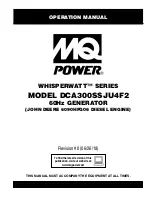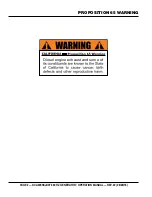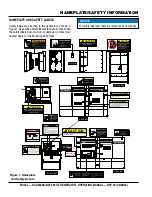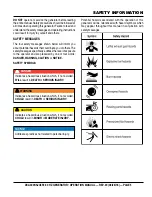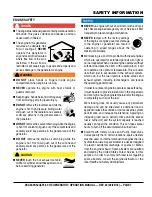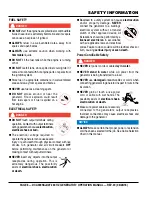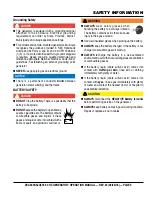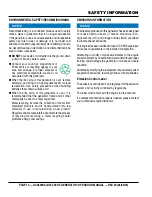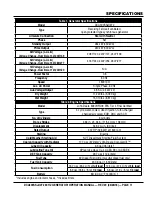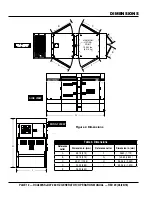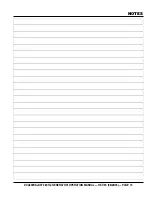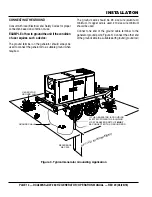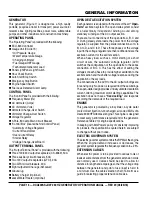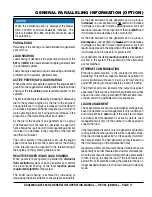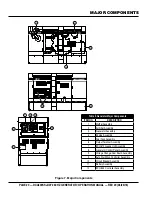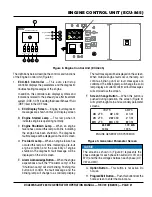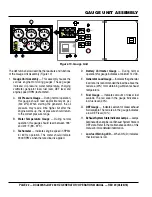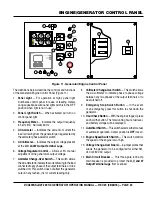
PAGE 8 — DCA300SSJU4F2 60 HZ GENERATOR • OPERATION MANUAL — REV. #0 (06/26/18)
SAFETY INFORMATION
FUEL SAFETY
DANGER
DO NOT
start the engine near spilled fuel or combustible
fl uids. Diesel fuel is extremely fl ammable and its vapors
can cause an explosion if ignited.
ALWAYS
refuel in a well-ventilated area, away from
sparks and open fl ames.
ALWAYS
use extreme caution when working with
fl ammable
liquids.
DO NOT
fi ll the fuel tank while the engine is running
or hot.
DO NOT
overfi ll tank, since spilled fuel could ignite if it
comes into contact with hot engine parts or sparks from
the ignition system.
Store fuel in appropriate containers, in well-ventilated
areas and away from sparks and fl ames.
NEVER
use fuel as a cleaning agent.
DO NOT
smoke around or near the
generator. Fire or explosion could result
from fuel vapors or if fuel is spilled on a
hot engine.
ELECTRICAL SAFETY
DANGER
DO NOT
touch output terminals during
operation. Contact with output terminals
during operation can cause
electrocution,
electrical shock or burn.
The electrical voltage required to
operate the generator can cause severe
injury or even death through physical contact with live
circuits. Turn generator and all circuit breakers
OFF
before performing maintenance on the generator or
making contact with output terminals.
NEVER
insert any objects into the output
receptacles during operation. This is
extremely dangerous. The possibility
exists of
electrical shock, electrocution
or death.
Backfeed to a utility system can cause
electrocution
and/or property damage.
NEVER
connect the generator to a building’s
electrical system without a transfer
switch or other approved device. All
installations should be performed by a
licensed electrician
in accordance
with all applicable laws and electrical
codes. Failure to do so could result in electrical shock or
burn, causing
serious injury or even death.
Power Cord/Cable Safety
DANGER
NEVER
let power cords or cables
lay in water.
NEVER stand in water
while AC power from the
generator is being transferred to a load.
NEVER
use
damaged
or
worn
cables or cords when
connecting generator to generator. Inspect for cuts in the
insulation.
NEVER
grab or touch a live power
cord or cable with wet hands. The
possibility exists of
electrical shock,
electrocution or death.
Make sure power cables are securely
connected to the generator’s output receptacles.
Incorrect connections may cause electrical shock and
damage to the generator.
NOTICE
ALWAYS
make certain that proper power or extension
cord has been selected for the job. See Cable Selection
Chart in this manual.

